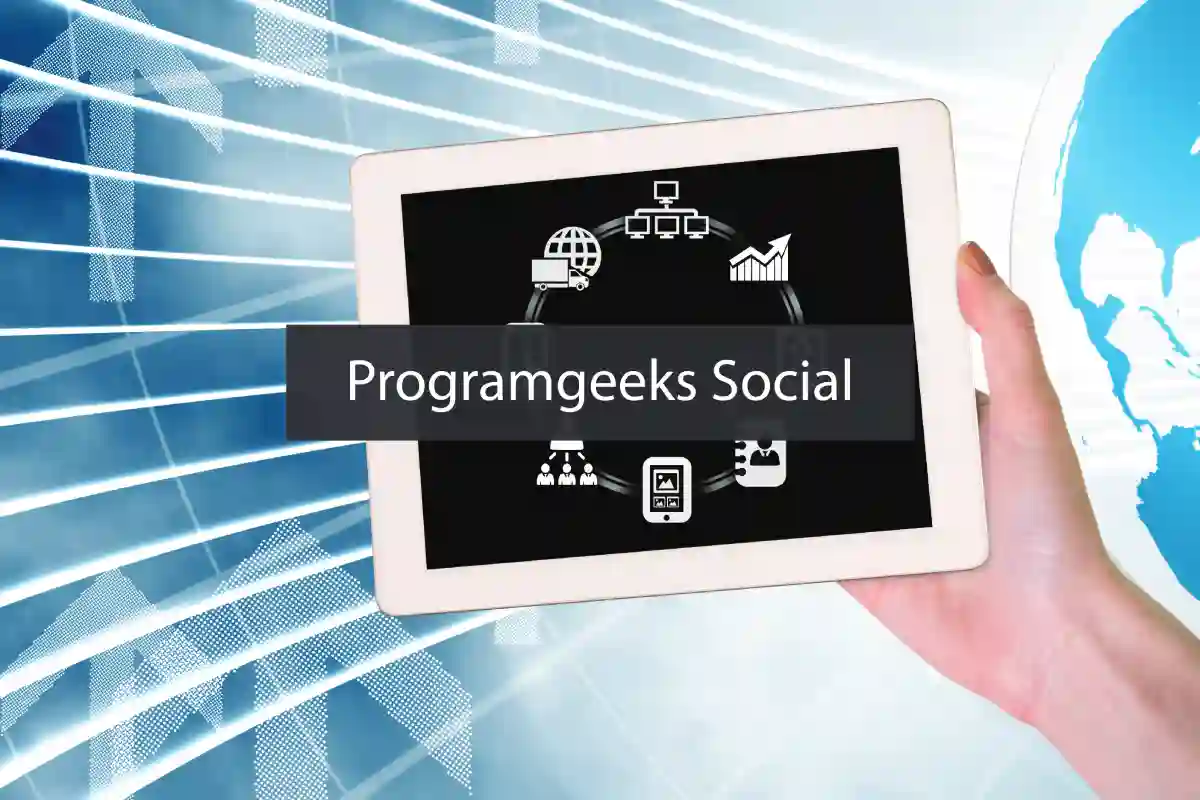Programgeeks Social – Connecting Coders Beyond the Code
Introduction
The coding world has long relied on tools like GitHub, GitLab, and Bitbucket to collaborate on projects, share repositories, and track commits. These platforms excel at version control and project management, but they often leave something out — the human side of coding. Developers interact primarily through pull requests, issue threads, and commit messages, but these interactions are usually tied strictly to project work. Programgeeks Social steps in to bridge this gap, offering a space where developers can connect, share ideas, and build relationships beyond lines of code.
Why Programgeeks Social Exists
GitHub does an incredible job of showing your technical contributions — every commit, merge, and fork is recorded. However, it doesn’t provide much space for personal interaction outside of direct project collaboration. Developers might want to share insights about the tools they use, discuss industry trends, or even collaborate on ideas that aren’t yet tied to a repository.
Programgeeks Social was built with this in mind. It is designed to be the social network for programmers — a place where they can maintain a technical profile and express themselves in a more relaxed, community-focused environment.
Core Features That Make It Different
1. Developer Profiles with Personality
Unlike GitHub, where your profile is essentially a summary of your commits and repositories, Programgeeks Social lets you build a complete profile. This includes skills, interests, learning goals, and even non-technical hobbies. A backend engineer can share their love for functional programming and their weekend photography adventures in the same space.
2. Topic-Based Communities
The platform is organized into communities, or “Hubs,” where developers can gather around shared interests. There might be hubs for Python beginners, blockchain developers, UI/UX designers, or AI researchers. Each hub supports both technical discussions and general networking.
3. Collaborative Idea Boards
Instead of waiting until an idea becomes a full project, Programgeeks Social allows users to post concepts on idea boards. Others can comment, offer feedback, or volunteer to collaborate. This feature encourages innovation at an early stage without the formality of setting up a repository right away.
4. Social Challenges and Hackathons
To keep engagement high, Programgeeks Social hosts periodic coding challenges and virtual hackathons. These events are designed to be more inclusive than typical competitive programming platforms — the focus is on creativity, collaboration, and learning.
5. Skill-Sharing Sessions
Members can host and join informal online sessions where they teach something they know — from setting up a Kubernetes cluster to designing accessible web forms. This peer-to-peer learning model fosters a culture of generosity and shared growth.
How It Fills the Gap GitHub Leaves
GitHub shows what you’ve done, but not always who you are. In many ways, your GitHub profile is like a résumé — professional, concise, and focused on achievements. Programgeeks Social acts like the networking event after the conference, where you meet other developers over coffee, discuss common challenges, and build lasting professional relationships.
By combining technical reputation with personal interaction, Programgeeks Social allows you to be more than your code. Recruiters, potential collaborators, and fellow developers can understand your personality, approach to problem-solving, and broader interests.
A Day in the Life on Programgeeks Social
Imagine logging in to find that someone has commented on an idea you posted about creating a language-learning app for developers. Another user invites you to join a hub focused on AI ethics. Later, you attend a 30-minute live skill-sharing session on using Docker efficiently. In the evening, you browse the “Tech Trends” feed and weigh in on a discussion about the future of WebAssembly.
Throughout the day, you’re not just coding — you’re connecting, learning, and contributing to a wider conversation.
Benefits for Different Types of Developers
- Beginners gain confidence by sharing small projects, joining supportive hubs, and receiving feedback from experienced developers.
- Freelancers find networking opportunities that can lead to projects and collaborations outside of job boards.
- Students can supplement their studies with practical knowledge, mentorship, and exposure to industry conversations.
- Open-source contributors can recruit team members and discuss project vision in a more casual setting than GitHub issues.
Privacy and Professionalism
Programgeeks Social balances openness with professionalism. Discussions are moderated to ensure they stay respectful and relevant. Users can choose how much of their activity is visible to others, giving them control over their public presence.
The Future Vision
The creators of Programgeeks Social envision a world where developers don’t have to choose between productivity tools and community spaces. By blending the two, the platform aims to become the go-to place for programmers who value human connection as much as technical skill. Plans for the future include integration with popular version control platforms, AI-driven skill matching, and offline meetups.
Conclusion
The coding world is about more than commits and repositories — it’s about the people behind the screens. Programgeeks Social recognizes this truth and provides a platform where developers can share knowledge, spark ideas, and build connections that last. In doing so, it fills the social gap left open by GitHub and similar tools, creating a space where code and conversation go hand in hand.






